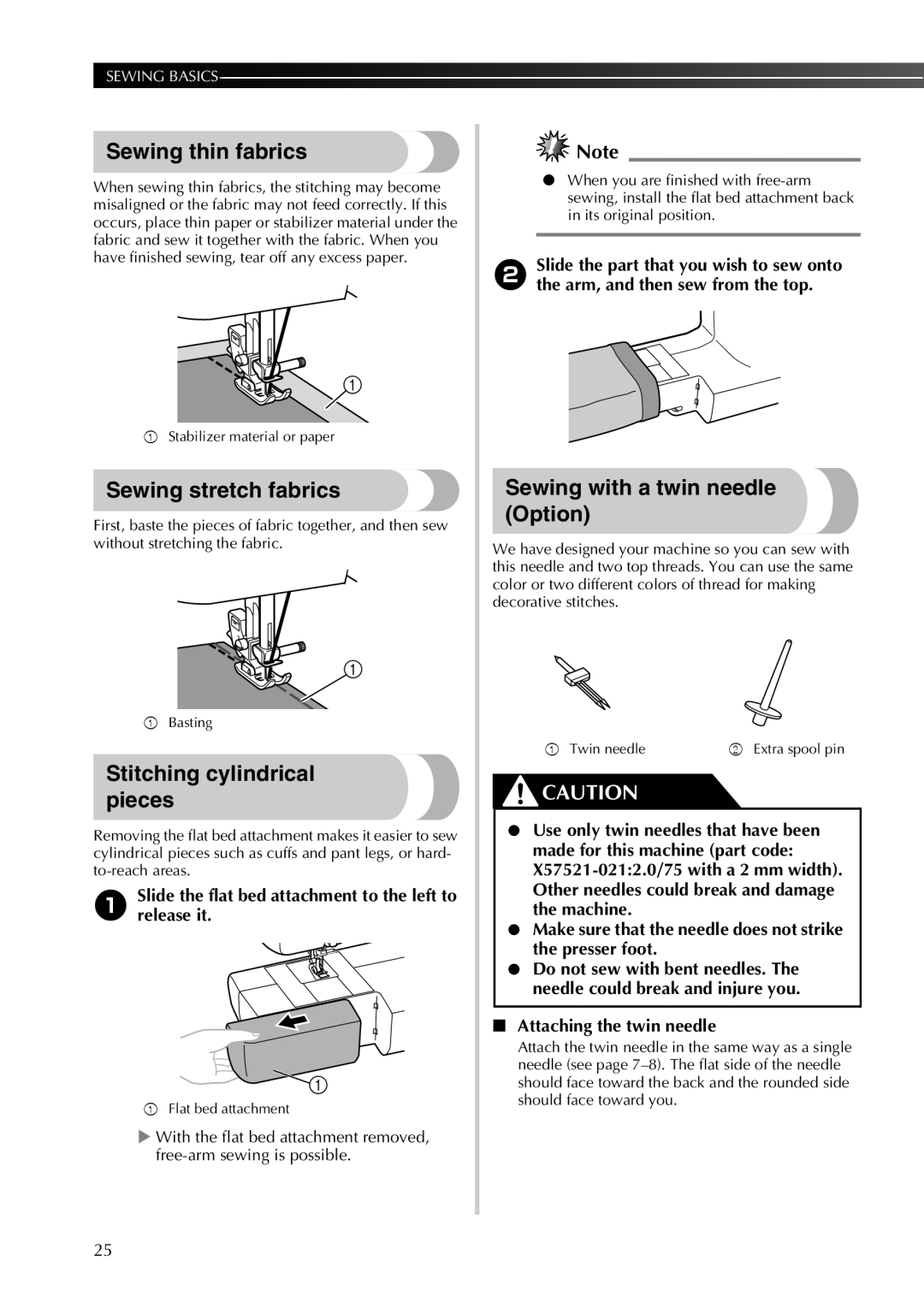
SEWING
Sewing thin fabrics
When sewing thin fabrics, the stitching may become misaligned or the fabric may not feed correctly. If this occurs, place thin paper or stabilizer material under the fabric and sew it together with the fabric. When you have finished sewing, tear off any excess paper.
1
1Stabilizer material or paper
Sewing stretch fabrics
First, baste the pieces of fabric together, and then sew without stretching the fabric.
1
1Basting
Stitching cylindrical pieces
Removing the flat bed attachment makes it easier to sew cylindrical pieces such as cuffs and pant legs, or hard-
1Slide the flat bed attachment to the left to release it.
1
1Flat bed attachment
XWith the flat bed attachment removed,
![]()
![]()
![]() Note
Note
●When you are finished with
2Slide the part that you wish to sew onto the arm, and then sew from the top.
Sewing with a twin needle (Option)
We have designed your machine so you can sew with this needle and two top threads. You can use the same color or two different colors of thread for making decorative stitches.
1 Twin needle | 2 Extra spool pin |
![]() CAUTION
CAUTION
●Use only twin needles that have been made for this machine (part code:
●Make sure that the needle does not strike the presser foot.
●Do not sew with bent needles. The needle could break and injure you.
■Attaching the twin needle
Attach the twin needle in the same way as a single needle (see page
25
